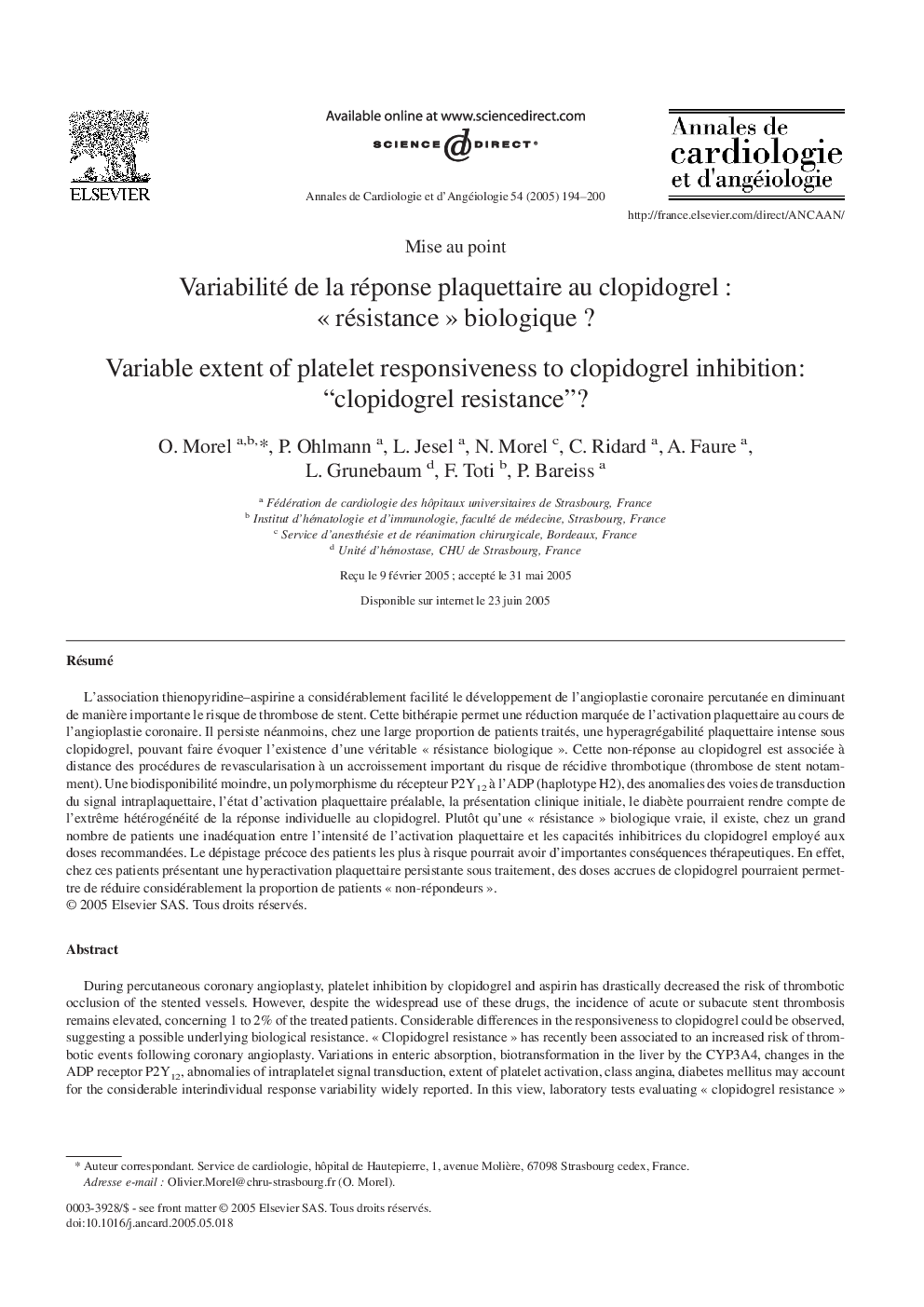| Article ID | Journal | Published Year | Pages | File Type |
|---|---|---|---|---|
| 9157182 | Annales de Cardiologie et d'Angéiologie | 2005 | 7 Pages |
Abstract
During percutaneous coronary angioplasty, platelet inhibition by clopidogrel and aspirin has drastically decreased the risk of thrombotic occlusion of the stented vessels. However, despite the widespread use of these drugs, the incidence of acute or subacute stent thrombosis remains elevated, concerning 1 to 2% of the treated patients. Considerable differences in the responsiveness to clopidogrel could be observed, suggesting a possible underlying biological resistance. « Clopidogrel resistance » has recently been associated to an increased risk of thrombotic events following coronary angioplasty. Variations in enteric absorption, biotransformation in the liver by the CYP3A4, changes in the ADP receptor P2Y12, abnomalies of intraplatelet signal transduction, extent of platelet activation, class angina, diabetes mellitus may account for the considerable interindividual response variability widely reported. In this view, laboratory tests evaluating « clopidogrel resistance » might be useful tools for the identification and follow-up of patients at higher thrombotic risk. Indeed, in these patients, further platelet inhibition can be achieved by higher doses of clopidogrel.
Related Topics
Health Sciences
Medicine and Dentistry
Cardiology and Cardiovascular Medicine
Authors
O. Morel, P. Ohlmann, L. Jesel, N. Morel, C. Ridard, A. Faure, L. Grunebaum, F. Toti, P. Bareiss,
